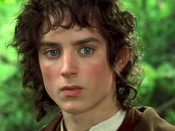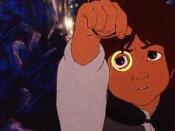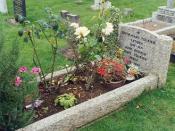Ever since Man first sat around a campfire, and found that he was lonely and in need of comfort, he began to believe in a higher power. That higher power evolved into a god, or perhaps even many gods, but for the most part, that higher power became a force that could shape a man's destiny, his thoughts, his actions, for the rest of his life. His very world could be molded by this force. This force was Fate. Man acceded to Fate often, sometimes even propitiated it, in order to retain some semblance of security. As Man grew intellectually, however, and understood more about himself and about the world in which he lived, he realized that this entity, Fate, was not as all-powerful as it had originally seemed. He realized that it was not Fate that controlled his destiny, it was choice, to be more specific, it was his choice.
It was his choice that could raise him up to heights beyond his wildest dreams, or plunge him down into the depths of darkest despair. The author J.R.R. Tolkien understood this realization, and harnessed its power in his trilogy of Middle-earth, The Lord of the Rings. He emphasized that choice, not Fate, shaped a man's destiny. His characters' choices could bring a mighty, inspired quest to the brink of utter failure and destruction, or bring peace and happiness back into a once cold and frozen life.
One episode in the last book of the trilogy, The Return of the King, that illustrates the magnitude of the effects of a choice is one of the last scenes in the book, which takes place at the Cracks of Doom. The protagonists of the story, Frodo Baggins and Samwise Gamgee, have risked life and limb to make their way into...


